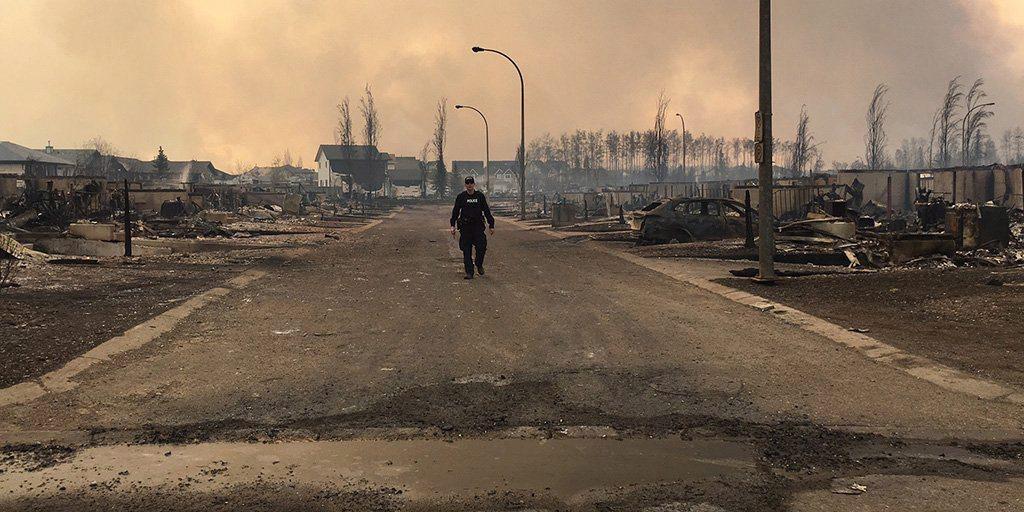See full coverage of the Fort McMurray wildfires here
While it may take weeks for the people of Fort McMurray to return home, it may take months for them to be out of the woods psychologically.
Raging wildfires struck the city in Alberta, Canada, last week, displacing some 90,000 and destroying 2,400 structures, according to the Province’s Premier Rachel Notley’s Facebook updates.
Videos showed people fleeing through burning streets with smoke and amber rolling over their windshields and towering flames consuming their homes.





